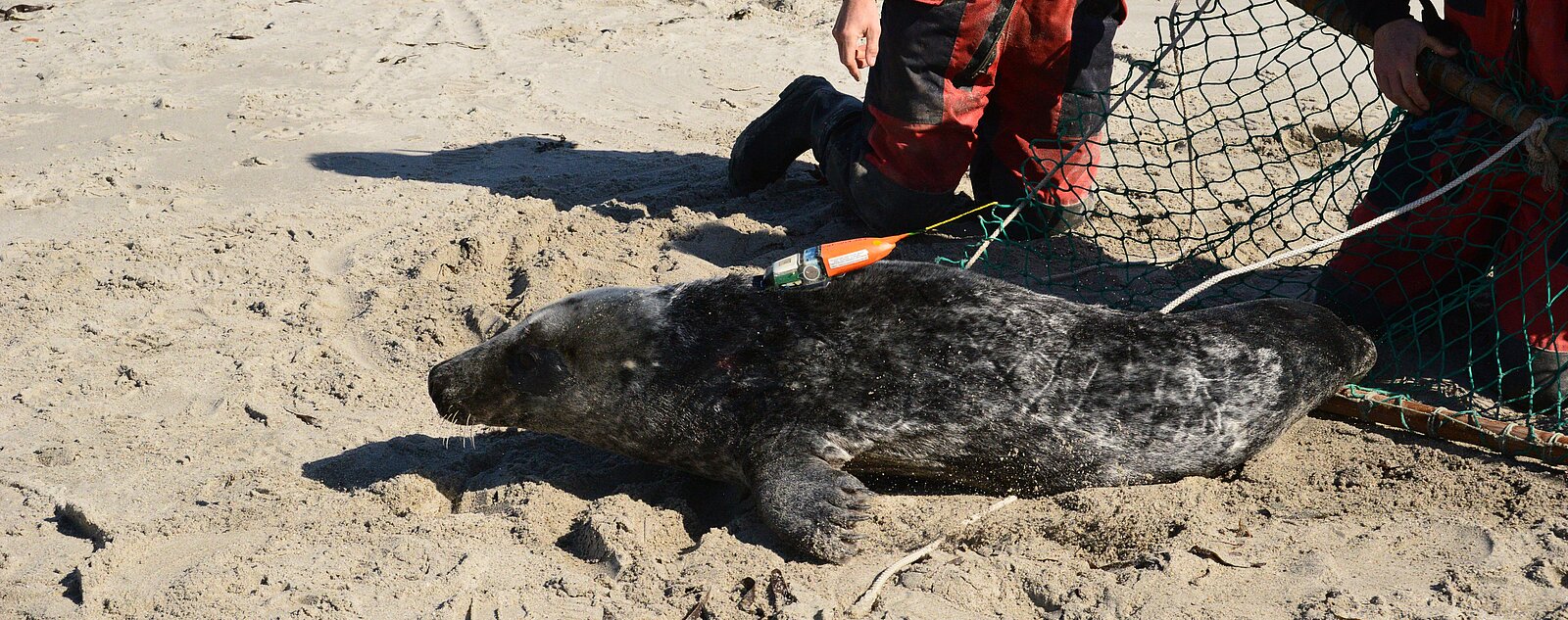
| Project data | |
|---|---|
| Project leader: | Prof. Prof. h. c. Dr Ursula Siebert |
| Chief scientist: | Dr. Joseph Schnitzler |
| Scientific staff: |
Dr. Tobias Schaffeld Dr. Dominik Nachtsheim |
| Cooperation partners: | Department of Bioscience, Faculty of Technical Sciences, Aarhus University |
| Project term: | November 2021 - November 2024 |
| Sponsorship: | Federal Nature Conservation Agency (BfN) |

Project description
The project aims to determine thresholds for marine mammals to show behavioural responses to ship noise and other significant anthropogenic underwater noise. For this purpose, up to 8 grey seals in the German North Sea will be transmitted with DTAGs, which record the movement and the received underwater sound on the animal. The grey seal data collected will be analysed together with data from 14 harbour seals in the German Wadden Sea and the Danish Limfjord already collected in previous projects. The sound data will be analysed with regard to ship passages. Subsequently, the ship passages will be assigned to individual ships that have been detected by AIS in the vicinity. The proportion of ship passages that originate from ships equipped with an AIS system is examined. In the further analysis, behavioural reactions that occur in connection with anthropogenic underwater noise are determined. In this analysis, threshold values are determined above which behavioural responses to underwater noise occur, thus making a significant contribution to environmental objective 6-01, the "derivation and application of biological thresholds for the effect of underwater noise on relevant species".
The behavioural responses will also be investigated in terms of distance to vessels, vessel types and cruising speeds. This step will enable an evaluation of the chances of success of proposed noise reduction or protection measures (in the sense of Environmental Objective 6-04), such as a speed limit, determination of shipping routes or the establishment of quiet zones. The studies should help to find a balance between the ecological, economic and social aspects of the use of the oceans. The overall impact of humans on the marine ecosystem is to be reduced to a tolerable level in order to enable sustainable use for future generations.
Contact person
Stiftung Tierärztliche Hochschule Hannover
Institute for Terrestrial and Aquatic Wildlife Research
Werftstr. 6
25761 Büsum
Dr. Joseph Schnitzler
Phone: +49 (0)511-8568155
e-mail schreiben


